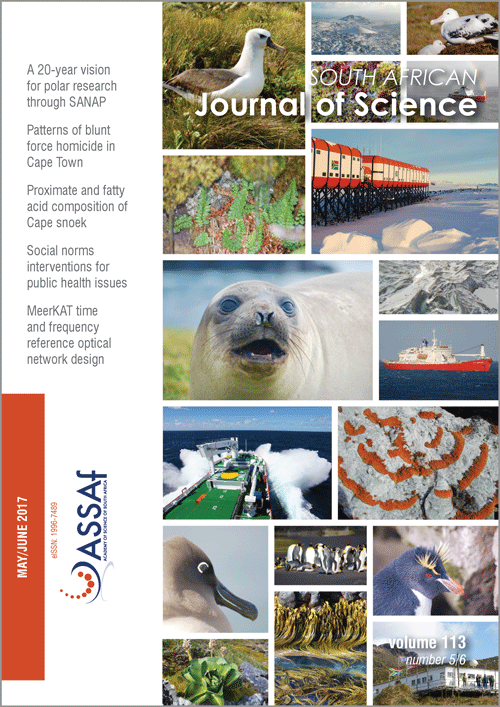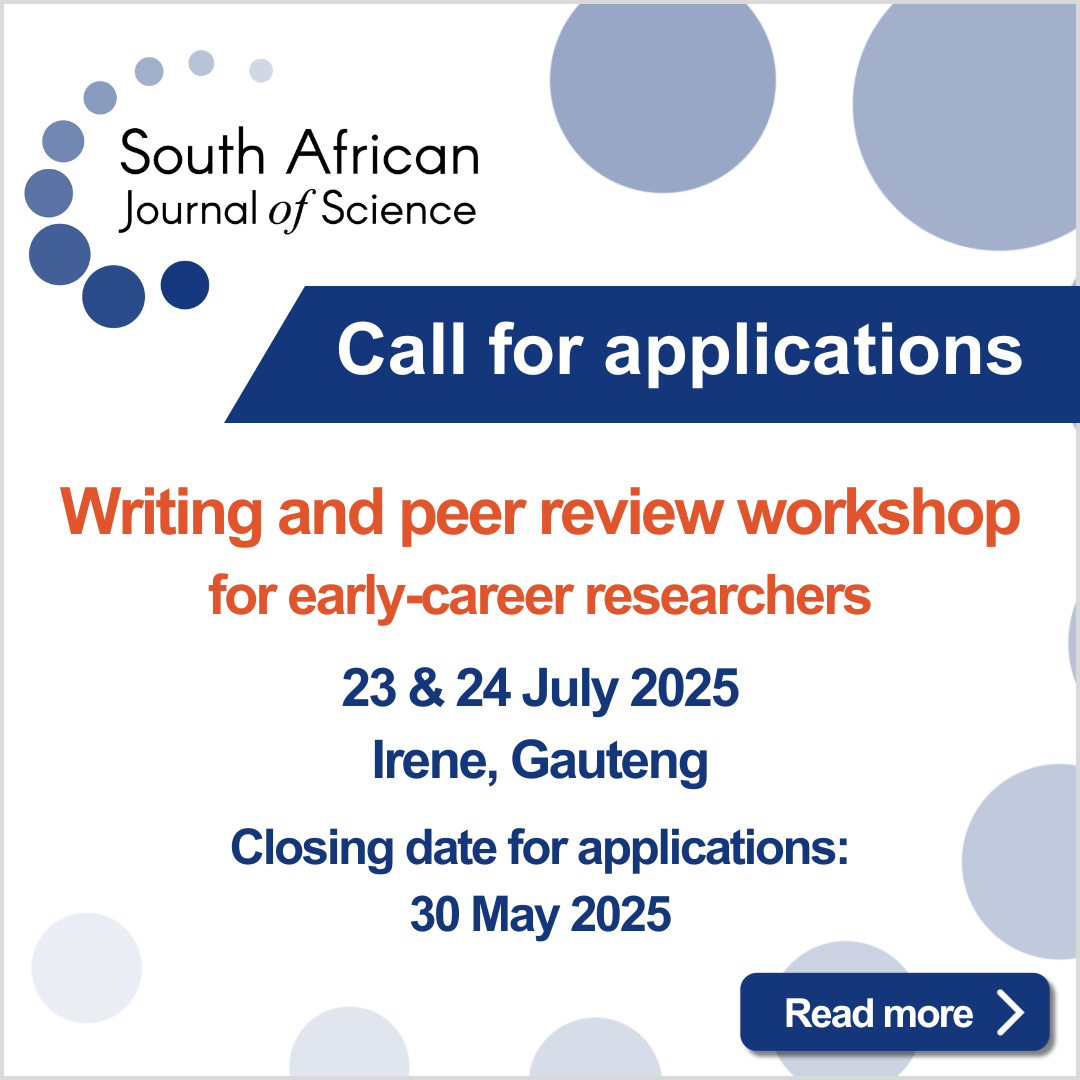A case study from the southern Cape linefishery 1: The difficulty of fishing in a changing world
DOI:
https://doi.org/10.17159/sajs.2017/20160252Keywords:
vulnerability, stressors, climate change, small-scale fisheries, social-ecological systemsAbstract
Variability on multiple temporal and spatial scales exposes fishers and fishing communities to multiple stressors. The impact and interplay of these stressors need to be considered to improve our understanding of social-ecological linkages if sustainable livelihoods are to be promoted. To this end, participant-led research was conducted in the small-scale traditional commercial linefishery of the southern Cape (South Africa) between Witsand and Mossel Bay. Knowledge and perceptions regarding stressors responsible for changes in the social-ecological system, which ultimately affect the fishers’ ability to fish successfully, were recorded using semi-formal interviews and focus groups with 50 participants. The results presented not only offer valuable insights into the day-to-day experiences of these fishers, but also expose knowledge gaps that exist in micro-scale interactions influencing the fishery system. An analysis of various stressors is presented, which includes the impacts of and responses to climate variability; challenges presented by fisheries policies and regulatory frameworks; social and economic considerations; inadequate infrastructure; and general political considerations. The development of a more comprehensive understanding of stressors that affect the social-ecological system at various scales provides valuable insights into a fishery system that is currently not well described, and provides the basis for analyses into vulnerability and resilience.
Significance:- Understanding the impact and interplay of stressors at multiple scales is important if sustainable livelihoods are to be promoted.
- This research provides insight into the day-to-day experiences of fishers whilst exposing knowledge gaps that exist at a micro-scale.
Published
Issue
Section
License

All articles are published under a Creative Commons Attribution 4.0 International Licence
Copyright is retained by the authors. Readers are welcome to reproduce, share and adapt the content without permission provided the source is attributed.
Disclaimer: The publisher and editors accept no responsibility for statements made by the authors
How to Cite
- Abstract 1083
- PDF 902
- EPUB 217
- XML 274













.png)